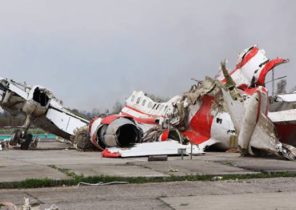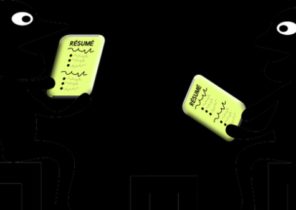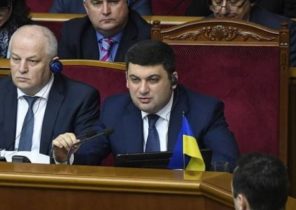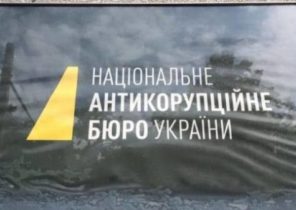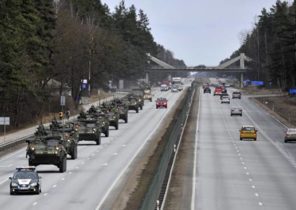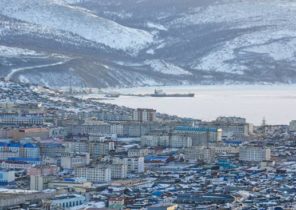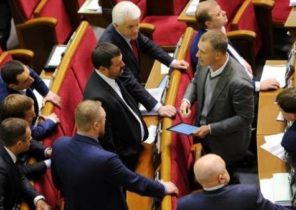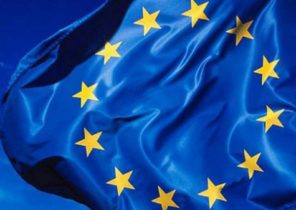
For Russia and Turkey at the peace talks in Astana at stake much, but at the end of the two-day summit on Syria, the results of these negotiations at first glance turned out to be modest. The meeting ended with a predictable communiqué approved by Iran, which seeks to strengthen the ceasefire is formally in force since 30 December.
But during the meeting there were also other themes that will not lose its value much longer. First, Russia is one of the main actors, which had lasted for six years of war — is configured to negotiations to end the conflict very seriously, and therefore is prepared to make more effort than ever. Secondly, despite the fact that the Assad regime, with the active and a huge support of Moscow and Tehran militarily win, its diplomatic capabilities are relatively weak.
The long-awaited moment, when Russia will have to declare their intentions against Bashar al-Assad, is now closer than ever. Exactly the same as the time when the Syrian leader will have to deal with his other patron, Iran, against which increasingly Russia and Turkey, as the city of Aleppo has been captured again under the leadership of forces supported by Tehran.
In Astana for the first time Russia disagreed with the Assad regime, reproaching him for what he claims that the attack on the Wadi Barada near Damascus leads al-Qaida. In addition, Russia has stated that the ceasefire regime violated not the strength of the opposition, and the Iranian and Syrian troops. Moscow has also openly recognized the legitimate two groups, which the Syrian authorities have long considered a terrorist — conservative “Ahrar al-sham” and “Jaish al-Islam”, which is an important force of armed opposition.
On the eve of negotiations Russian foreign Minister Sergei Lavrov as ever outspoken on the issue of Russia’s interference, saying that Damascus was three weeks from the fall, when, in September 2015, Vladimir Putin sent their HQs to rescue Assad.
Collective message is clear: ensuring country safety and using the bombing forcing the opposition to sit down at the negotiating table, Putin now wants to obtain this result, which he could be proud of and which would loudly declare to the whole world. To reach agreement about the end the most intractable conflict of the XXI century would be a critical achievement for the Russian leader, who intends to create a new world order. And to achieve this, when the United States tried to do and failed, twice as nice.
Russian officials believe that Donald trump will shape its middle East policy solely on the basis of the protection of Israel and the defeat of ISIS (an organization banned in Russia — approx. ed.), and the last one he is likely to achieve it by cooperating with Putin and others. They also rely on the fact that trump is not particularly interested in what initially caused the conflict, and what has since contributed to its continuation, and it will allow a resurgent Russia to dictate its terms.
Restored Russia’s relations with Turkey continued to strengthen in Astana, both sides are increasingly unified in matters relating to what steps need to be done after the summit. The Turks played a major role in shaping the new attitude of Moscow to the opposition — in particular, the organization “Ahrar al-sham,” which Ankara supports throughout the war.
They are also kept at a distance of Kurds and made concessions to Assad, handing him the position, stating that his immediate resignation is not Central to the resolution of the conflict. This idea still sticks with Russia despite the fact that in recent time its application is not so determined. The main signal of its new rhetoric to warn Assad that you can do without it, and it is possible to find a replacement if it completely take the side of Iran, which has a completely different idea of what should be a post-war Syria.
Turkish officials have repeatedly said that in the last few weeks was disappointed in the “extremely ideologiserad” Iran and the fear that, if in the near future will not be produced by a political decision soon between them again can take shape the gap. Iran, in turn, continues to accuse Turkey of fomenting the clashes, and support the jihadists, who played a Central role in many events in the North of Syria.
The General impression and reaction to the negotiations was of great importance for all participants. The summit was the first in more than two years a meeting of the warring parties, and, more importantly, at this summit the representatives of the Syrian authorities and the opposition leaders for the first time sat down at the negotiating table. The choice of location was also significant — far from the peaceful tranquility oriented towards NATO in Western Europe and in the heart of the former Soviet bloc.
Communiqué is mainly aimed at ending the ongoing fighting in Wadi Barada area, which supplies Damascus with water. It is expected that the tripartite mechanism under the leadership of Turkey, Iran and Russia must ensure the cease-fire. The opposition and the regime to sign a communiqué refused, but more importantly, it is signed by the guarantor countries.
After it lasted for a year and a half of sparring and criticism of the opposition almost lost their fighting spirit, and those who assisted her, the desire to continue to support losing the intensity of the conflict and less. And Central to this is the fact that Russia of the warring parties has evolved into a political force. The opposition knows that her attempts to control Syria have failed. And Assad was given to understand that after efforts to save him, Russia now wants the conflict was resolved on her behalf.
